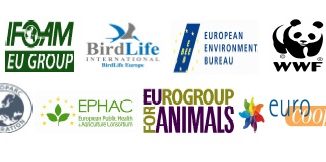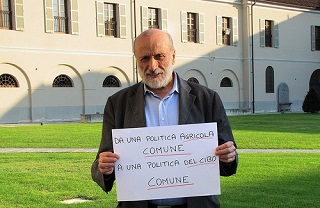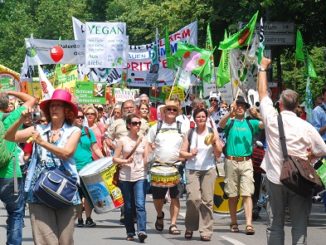In light of this week’s MEP vote on the CAP, it’s worth having a closer look at who lobbies on what, and why they do it.

Even the most minimal of environmental or worker rights legislation can be far too costly to implement, and can involve huge economic losses, industry funded reports helpfully tell us.
Plenty of money is available however, for pet PR projects and lobbying. Tobacco giant Philip Morris became notorious for spending $2 million supporting a domestic abuse shelter, but $108 million on a TV advertising campaign promoting the fact that they did this. (Direct tobacco adverts were, and are still, banned, so this was a great way to get exposure for the brand).
More recently, companies like Syngenta and Bayer have devoted handsome wads of cash to lobbying on the Common Agriculture Policy (CAP).
They are not alone. According to Corporate Europe Observatory CEO, who provide this table to list interests active on the CAP:
“151 organisations representing agribusiness-related interests have declared a total of €49.2 million euro in lobbying expenditure while 40 organisations representing family farms, workers, consumers and environmental interests have declared some €12 million, producing a ratio of slightly over 4:1”.
The number of citizens represented by the 40 organisations is massive, yet their money spend is minimal.
CEO add:
“…research projects that are prioritised and funded today may have a decisive impact on the way agriculture is practised in the future. That is why the ongoing lobbying battle for the control of these funds is so important: behind these projects, it is the very vision for the future of agriculture in Europe which is at stake.”
The dataset itself is considered incomplete and a guesstimate for various listed reasons. And in any case, “The registered amounts do not necessarily represent the real expenditure on CAP lobbying because many of these are also active on other policy dossiers,” CEO state.
According to CEO, Syngenta are listed as spending 650,000 euros on lobbying. Bayer seem more dedicated however, with a whopping 2,525,000 euros outlaid.
There are subtle ways that the aforementioned “policy dossiers” can be filled. Much of the reporting on (RTE radio) and visual footage of the recent Syngenta-funded Forum on the Future of Agriculture featured or mentioned aesthetically pleasing flowering pollinator field margins, some of which which had been re-located to the front of house at the conference.
The damage caused by Syngenta’s own neonicotinoid insecticides to pollinators didn’t get the same sort of profile for some reason.
The old adige that ‘corporations would hardly spend the money if it didn’t work’ seems succinctly apt, and worth exploring further.





